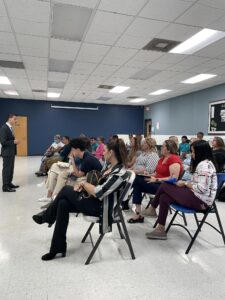Between “trusted” celebrity spokespersons and advertisements in newsprint and on line touting the advantages of a reverse mortgage, senior citizens are being bombarded with the benefits of a reverse mortgage as a way to assess money for “the good life” during retirement, “take a much needed vacation!” or “spend it however you want!”. However, what these advertisements neglect to tell the consumers is that the supposed “ease” of getting this money carries risk.
A reverse mortgage is a way for older homeowners to transform the equity in their home in cash without having to either move or make regular loan repayments. If you own a home and are at least 62 years old, you may qualify. The loan does not have to be repaid until the last surviving borrower dies, sells the home or permanently moves out, which is non occupation of the home as the primary residence for a year.
This money can be received in one of three ways: a lump sum, as a line of credit or in a series of regular payments. A reverse mortgage cannot be taken out if there is a prior debt against the home, and the amount received depends on the value of the home, the age of the borrower and current interest rates: the lower the interest rate and the older the borrower, the more that can be borrowed. The borrower is still required to pay all taxes and any other municipal obligations, maintain homeowners insurance and maintain the residence. Interest is also charged on the money disbursed, and at the closing of the loan there are the normal closing costs charged in any other real estate transaction, such as fees and costs to the granting institution and title insurance.
The problem with these loans is that they carry large insurance and origination costs and may affect eligibility for government benefits like Medicaid. They’re not ideal for parents whose major objective is to safeguard an inheritance for their children.
Also, make sure both spouses are on the mortgage, it may be tempting to only use the older spouse, and access more money, but if both spouses are not on the mortgage and the older spouse dies first, the surviving spouse is required to repay the mortgage loan in full or face eviction.
A reverse mortgage can be a great tool in the right circumstances, if needed for paying medical expenses not covered by Medicaid or insurance. If you opt for a reverse mortgage, make sure both spouses names are on the mortgage and watch out for a lump sum loan.
Look for a reverse mortgage with a line of credit with a variable interest rate, where you only access the money as you need it and your interest charges will be lower than a lump sum loan, which have a fixed interest rate and earns interest every month.








